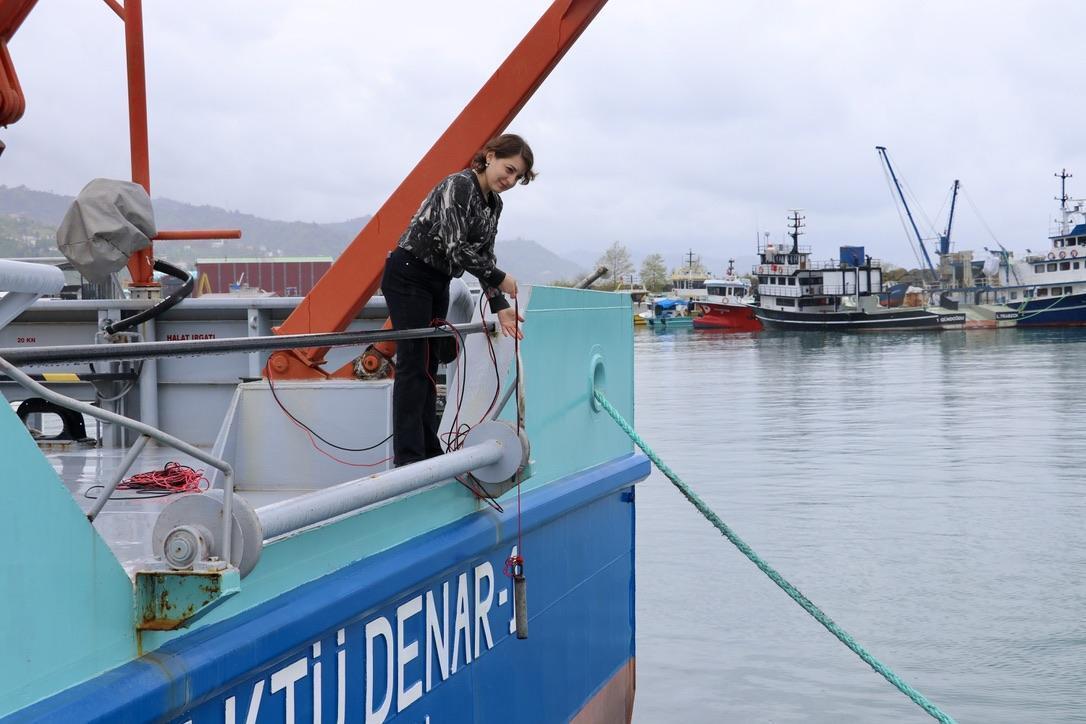
A research team from the northeastern province of Trabzon has begun measuring underwater noise pollution in the Eastern Black Sea, which is believed to affect the communication, feeding and reproductive behavior of marine life.
Professor Dr. Fatma Telli Karakoç, a faculty member at Karadeniz Technical University’s Faculty of Marine Sciences, and her graduate student Melike Tüysüz, launched the project, focusing on measuring sound levels in areas including fish farms, port zones and open sea.
With support from the Scientific and Technological Research Council of Türkiye (TÜBİTAK), the team started collecting underwater noise data using hydrophones deployed at various coastal and offshore points via the university’s research vessel.
Karakoç explained that the measurements will be carried out in two-month intervals. “Every two months, we will return to the selected sites; the fish farm, the port and the offshore zone, to measure the frequency range of underwater sounds. We’ll then compare these frequencies with those associated with marine species,” she explained.
The three study locations were chosen to represent different activity levels: The open sea area is as far removed from human activity as possible; the fish farm site is a busy fishing area where boat traffic and fish activity are common; and the port site is within Trabzon Port, one of the region’s busiest maritime zones.
The goal is to observe the differences between areas with high human activity and those with little or none, according to Karakoç.
“This is the first time such a study is being conducted along the Eastern Black Sea coast,” Karakoç said.
She emphasized that underwater noise pollution should be considered an environmental threat, noting that noise pollution affects marine animals from the egg stage through to adulthood.
“It poses a threat to every species living underwater. It disrupts communication between individuals, alters reproductive behaviors and timing, and changes feeding patterns and locations,” she explained.
Graduate student Melike Tüysüz said that research on underwater noise pollution is still new in Türkiye and that historical data is limited.
“Using what we discovered, we created a roadmap for ourselves,” she said, noting that they reviewed international studies.
The project is expected to last for about one year, with the results to be used in future scientific research and academic publications.